In Kenya, Water, Sanitation, and Hygiene Are Essential Services During COVID-19 Pandemic
Daily access to safe and reliable water, sanitation, and hygiene (WaSH) facilities are vital to building healthy and resilient communities. During the COVID-19 pandemic, WaSH services are more essential than ever to help prevent and mitigate the spread of the Novel Coronavirus.
It is for that reason that the Kenyan government has deemed our work there as an essential service. For the last few weeks, our teams in Western Kenya have continued operating while the rest of the country moves into various stages of lockdown and quarantine.
Why? Because a national shortage of health care workers has required expert teams like ours to partner with the government to promote messages of good hygiene across our well-established local networks.
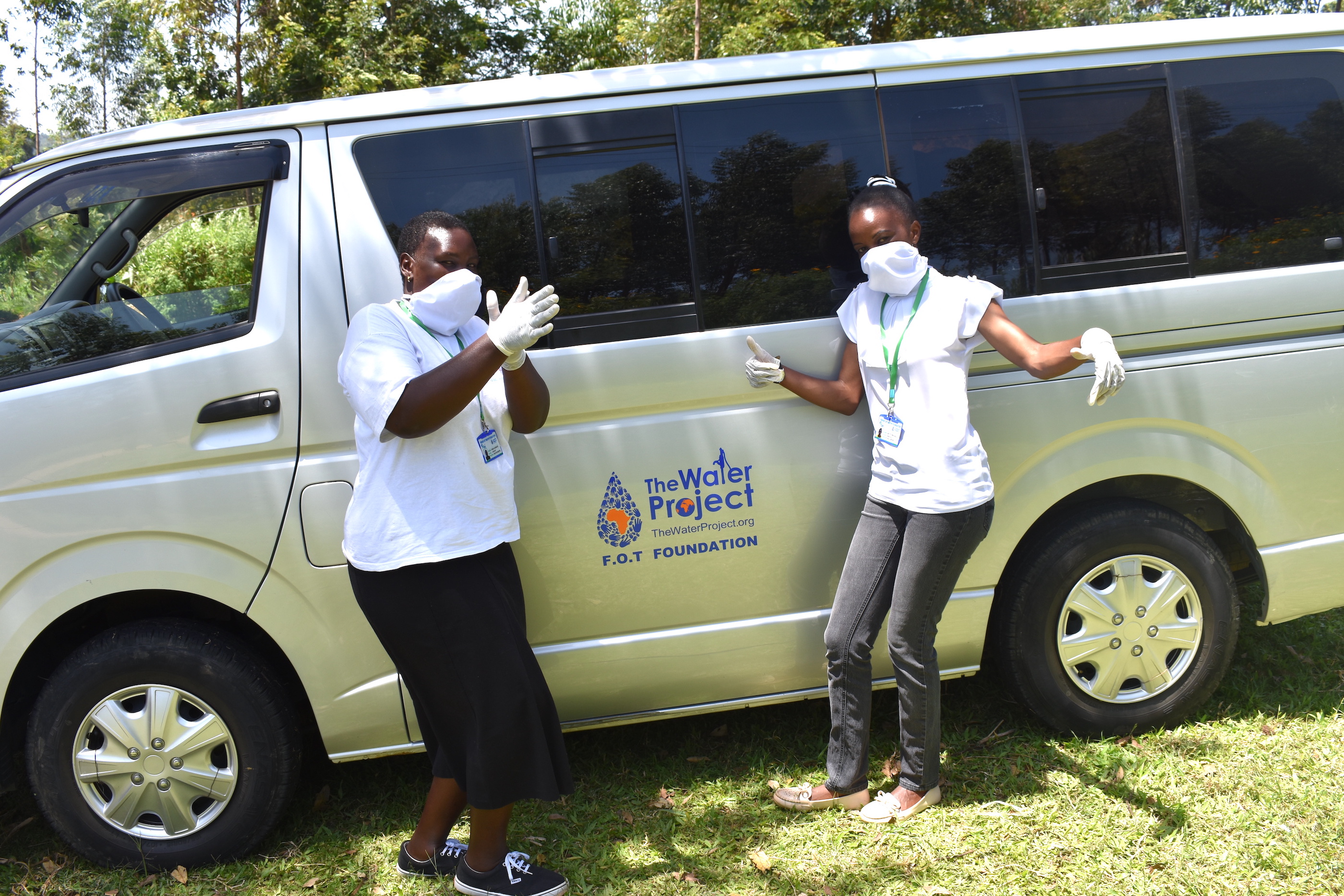
Team Leader Emmah and Field Officer Betty show off their personal protective gear in front of their staff van before heading out to lead a community training
Our teams are taking every precaution to protect their own health and in so doing, the health of the communities they continue to support. They avoid public transportation and travel in small groups. Each staff member has 2 masks that they wear in the field and wash daily, in addition to a pair of gloves. Their work vehicles are stocked daily with gloves, water, soap, and hand sanitizer to enable handwashing throughout their day.
At each community visit, our teams observe social distancing and help the community members to understand and observe the same. We are improvising new ways of marking safe distances for people to wait at busy water points, including using small rock piles and wooden stakes driven into the earth measured 6 feet apart.
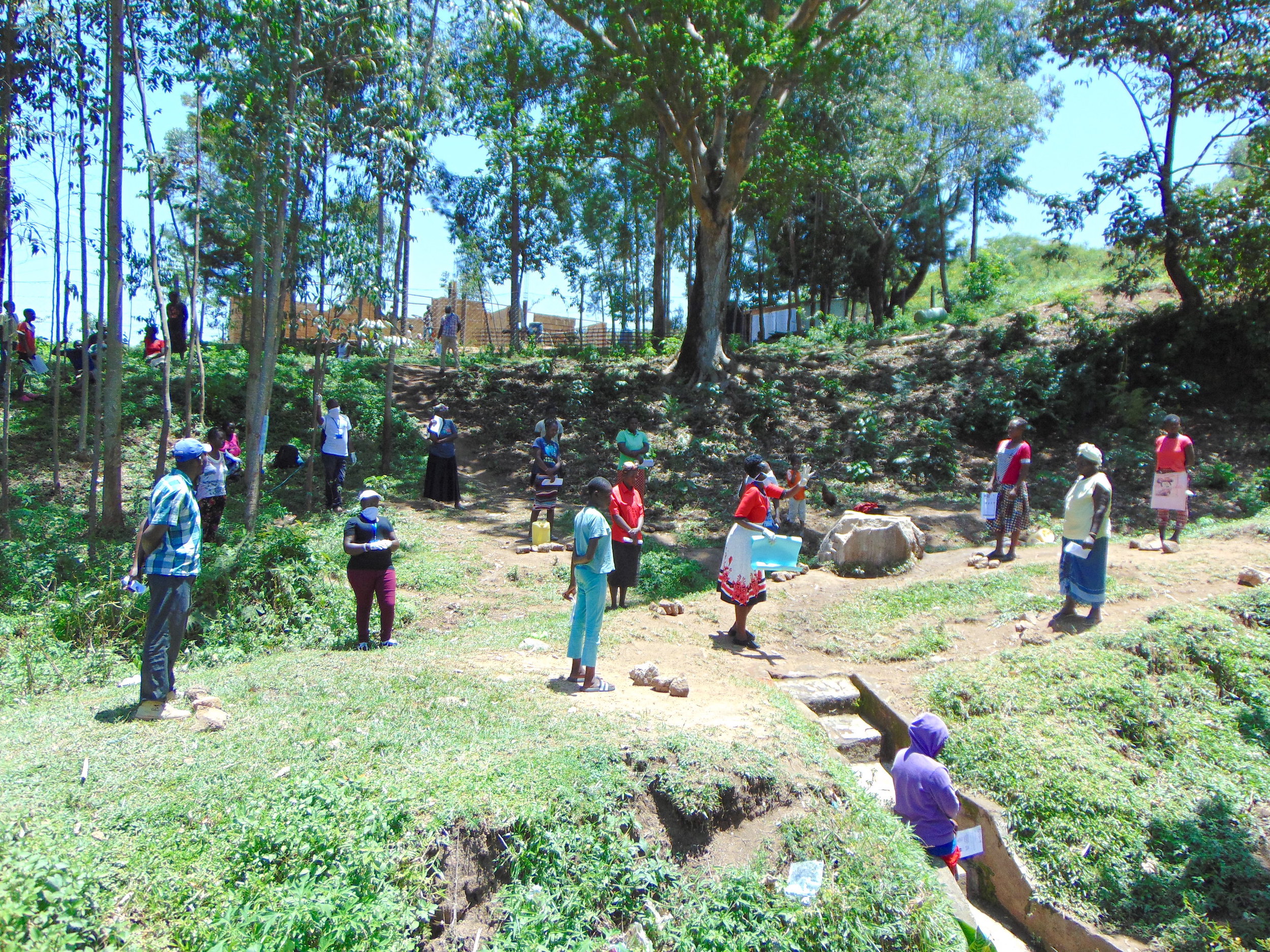
Staff (wearing masks) help arrange small rock formations around the spring site to encourage social distancing while waiting to fetch water at David Ashiona Spring in Shiamala Community
To schedule each training, our staff coordinate with the local leadership in each village to ask for permission and approval of a small hygiene training. This helps to encourage those community members who are rightfully wary of any group gathering by explaining that as long as the numbers are kept relatively low, this is a government-sanctioned training.
Our staff have also been given identification badges from the government to be worn at all times during their work, offering another layer of assurance to community members that our staff has specifically been asked to carry out this work.
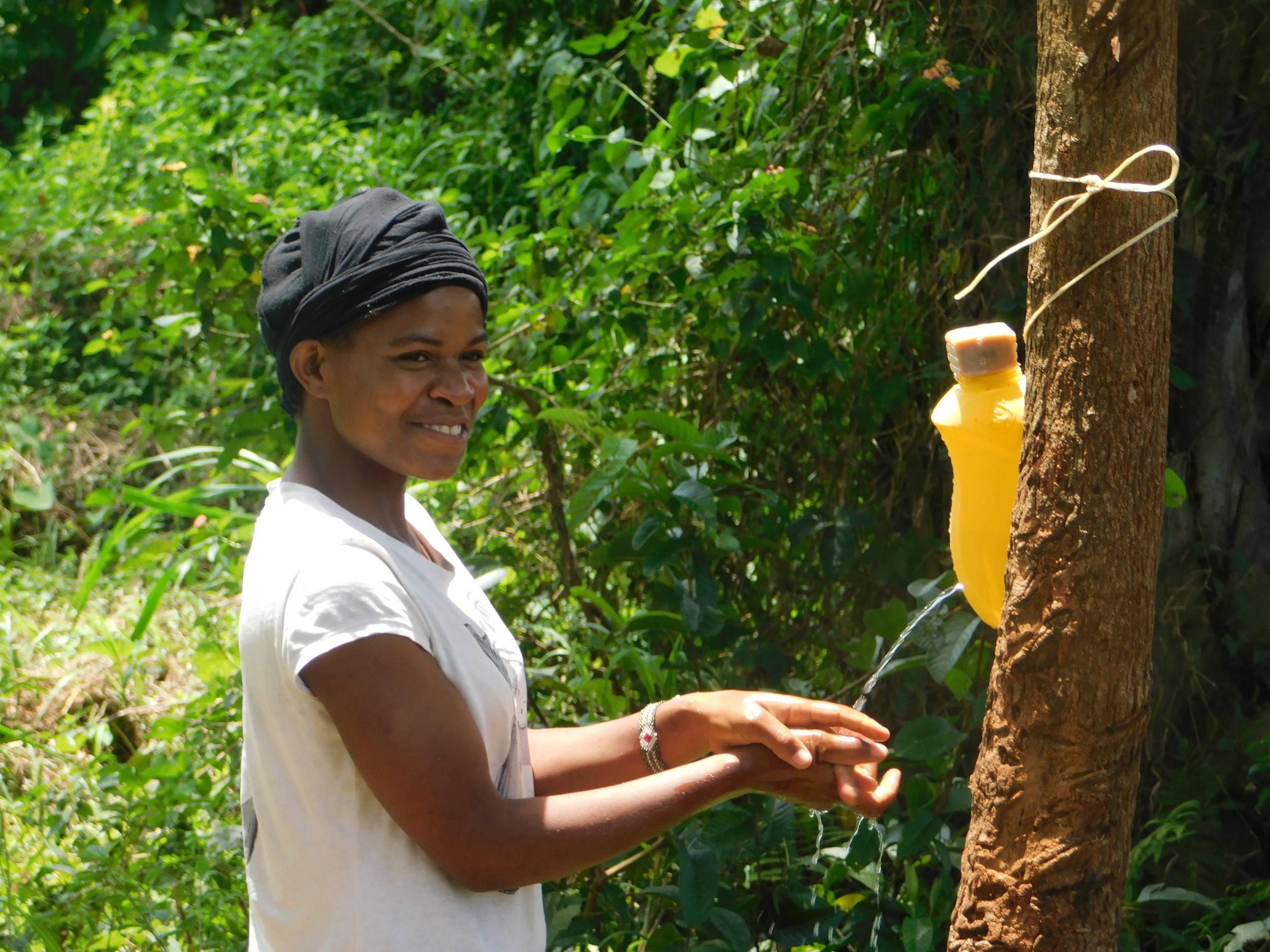
A woman washes her hands at a newly established leaky tin near Asena Spring in Mungakha Community
Upon arrival, our teams have experienced a wide array of reactions from community members ranging from fear to excitement. Some children especially have been put off my staff members’ personal protective gear, thinking the trainers are wearing their gear because they are ill. Throughout the morning, however, the trainers are able to work with the adults and eventually win over the children as they explain they are there to help.
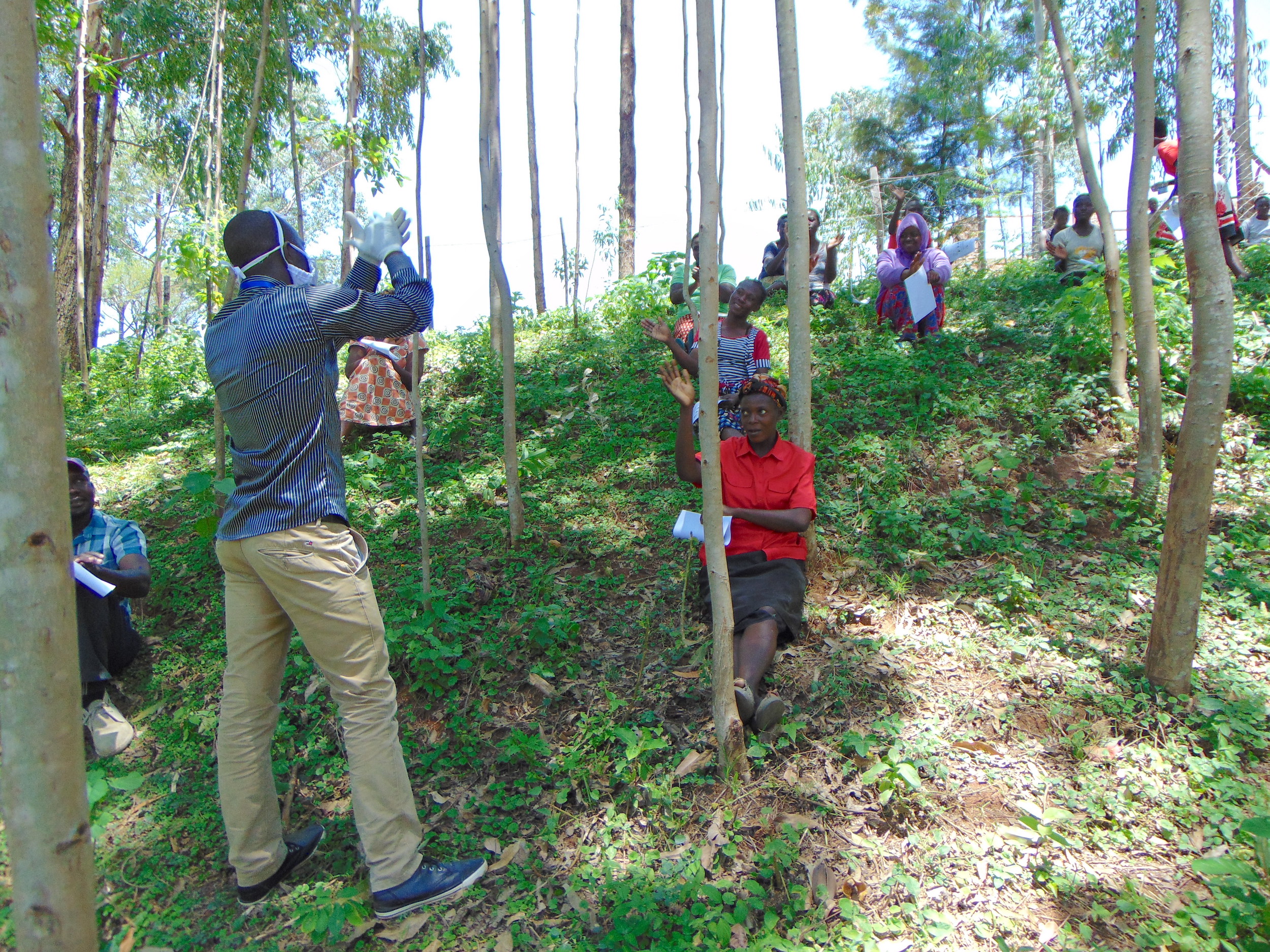
A facilitator asks community members to follow along with the 10 steps of handwashing during a demonstration at David Ashiona Spring in Shiamala Community
One of the most important messages we repeat is that “Prevention is in our hands”, quite literally. We review the symptoms and prevention of COVID-19, social distancing, and general precautions people can take at the household and community levels in the fight against this disease.
Many attendees have taken to bringing their own chairs so they can comfortably spread out from others at the training. The children can be harder to keep separate as they want to play and see their friends since they have been home from school since mid-March, but the adults incessantly remind them of the importance of distancing.
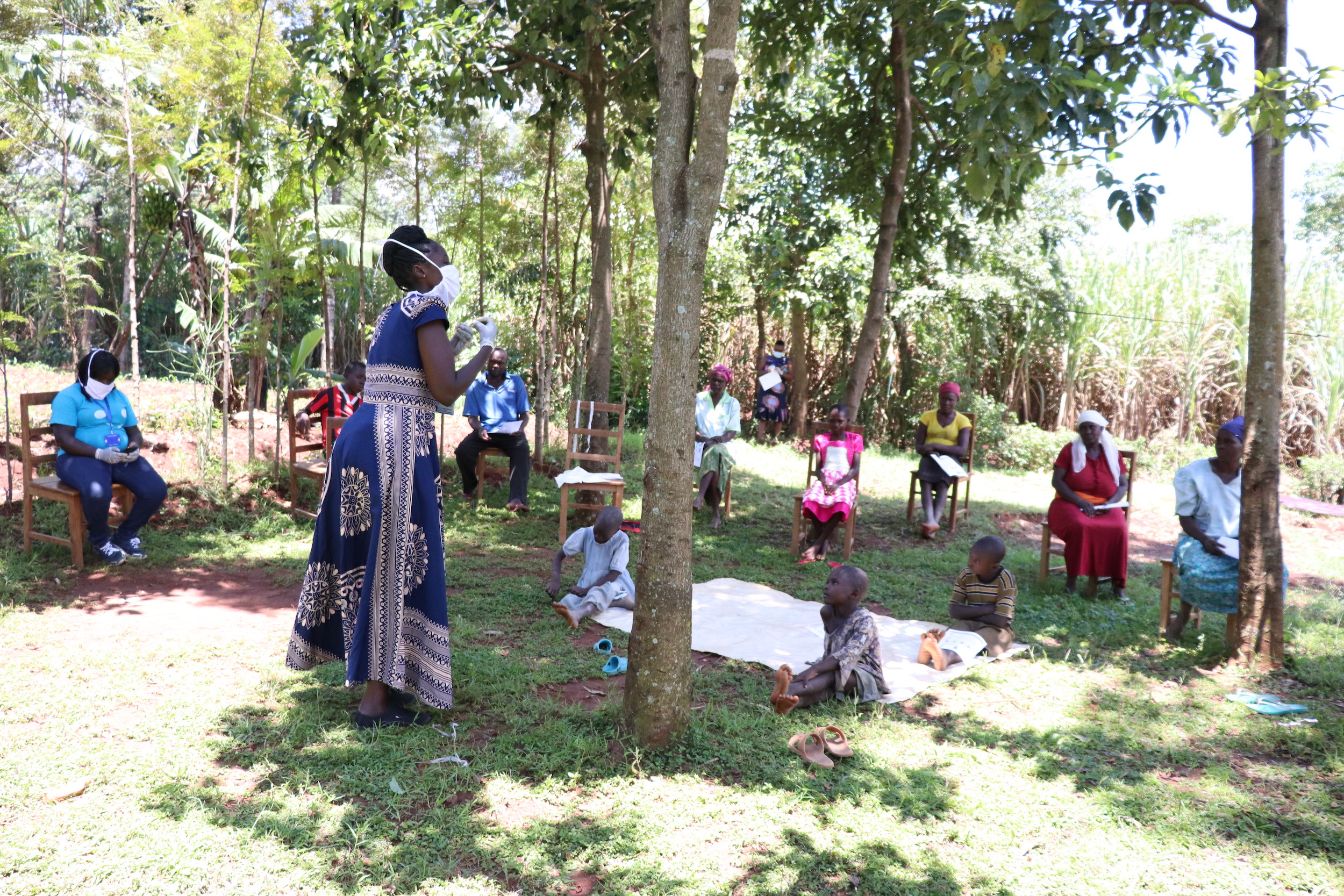
Trainer Jacqueline Shigali demonstrates handwashing to a group of community members practicing social distancing in their own chairs near Atechere Spring, Timbito Community
One of the most important topics covered during these sensitization trainings is proper handwashing technique. We are emphasizing the use of soap over hand sanitizer or bleach, which are harder to acquire locally anyway.
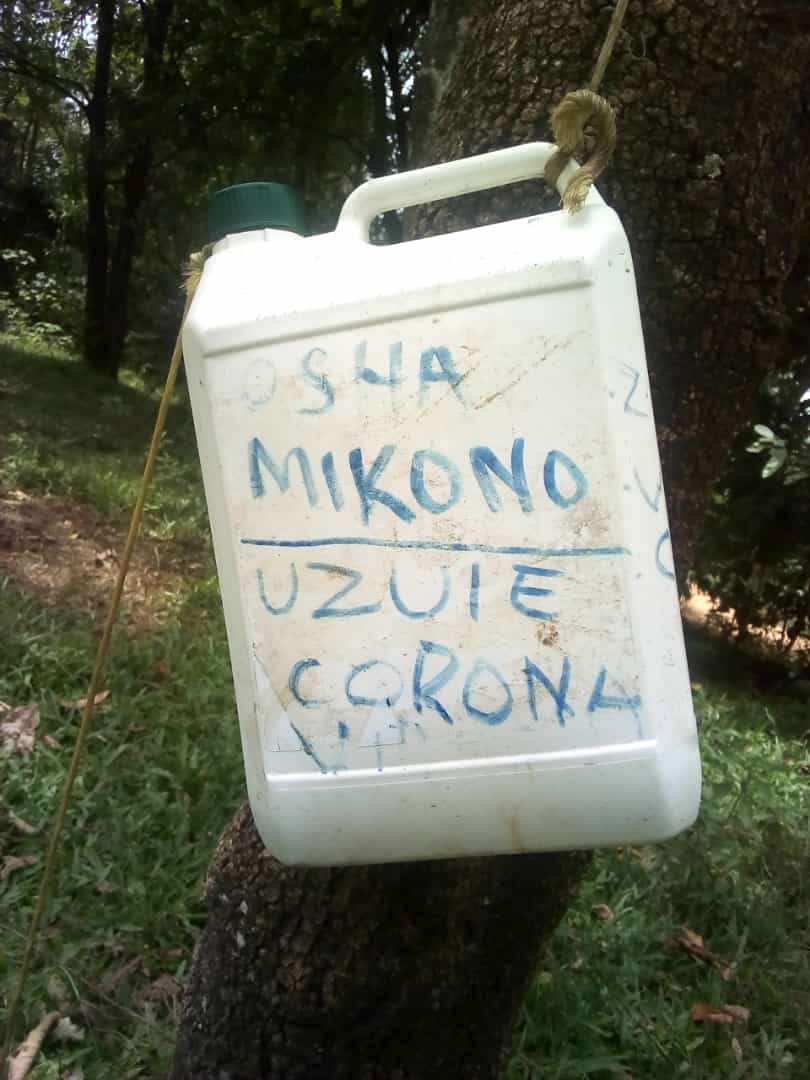
Tippy tap handwashing station set up near a well reads “Osha mikono uzuie Coronavirus” – “Wash your hands and prevent Coronavirus”
By the end of each training, a new leaky tin or tippy tap handwashing station is established at the community’s water point, whether it is a well, a protected spring, or a water point we are hoping to work on soon. We are asking water users to wash their hands each time before they fetch water.
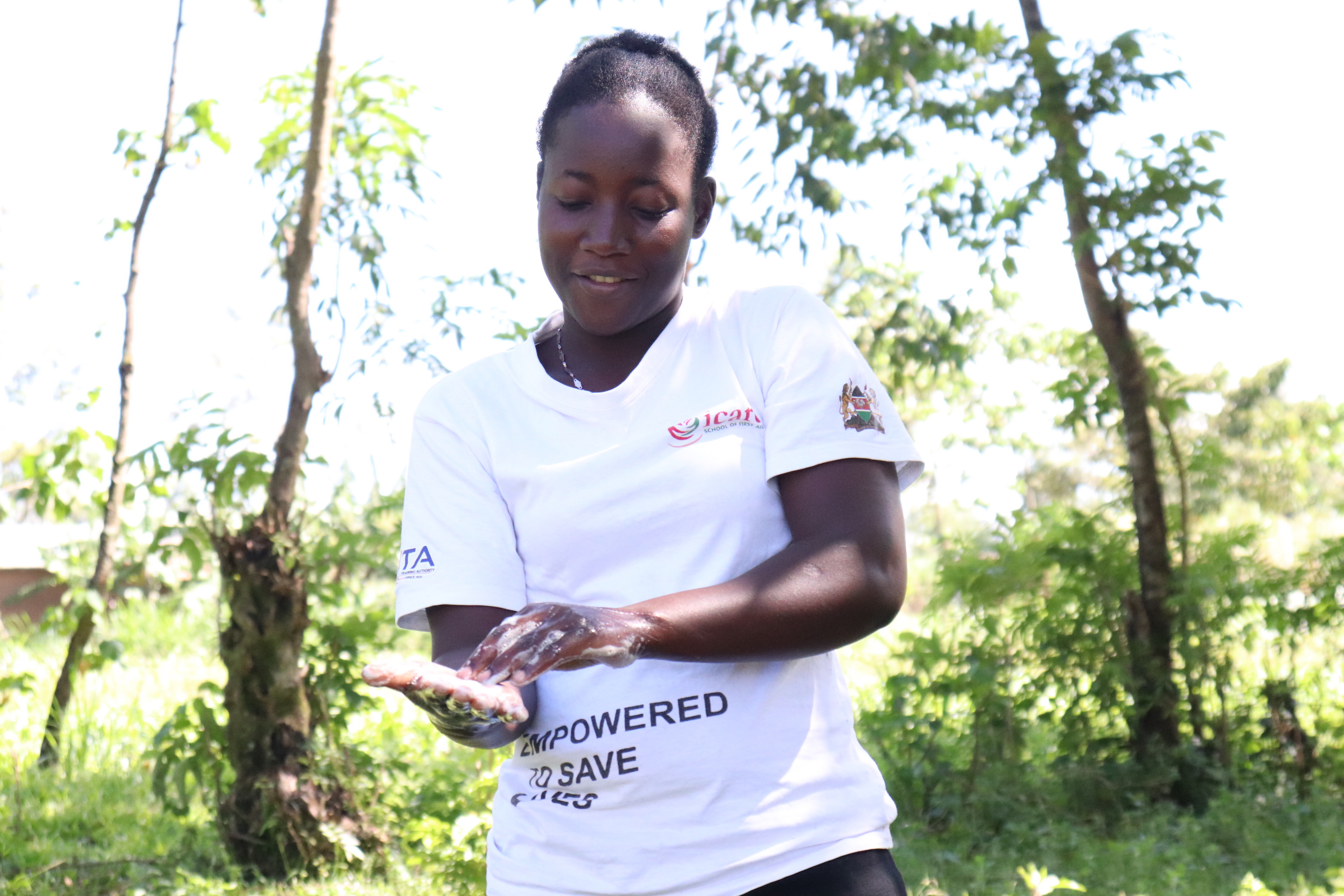
A community member demonstrates handwashing with soap near William Katui Spring in Namanja Community
Another important aspect of training is a large poster we write out in the predominant local language, whether that is Kiswahili, Luhya, or something else, to warn people of the disease and remind them to wash their hands with soap. These signs are made of the widely available plastic sugar sacks and the words are painted on. We then attach these signs directly to the water point’s fence, a nearby tree, or on its own wooden stakes to make sure it is visible to anyone visiting the water point.
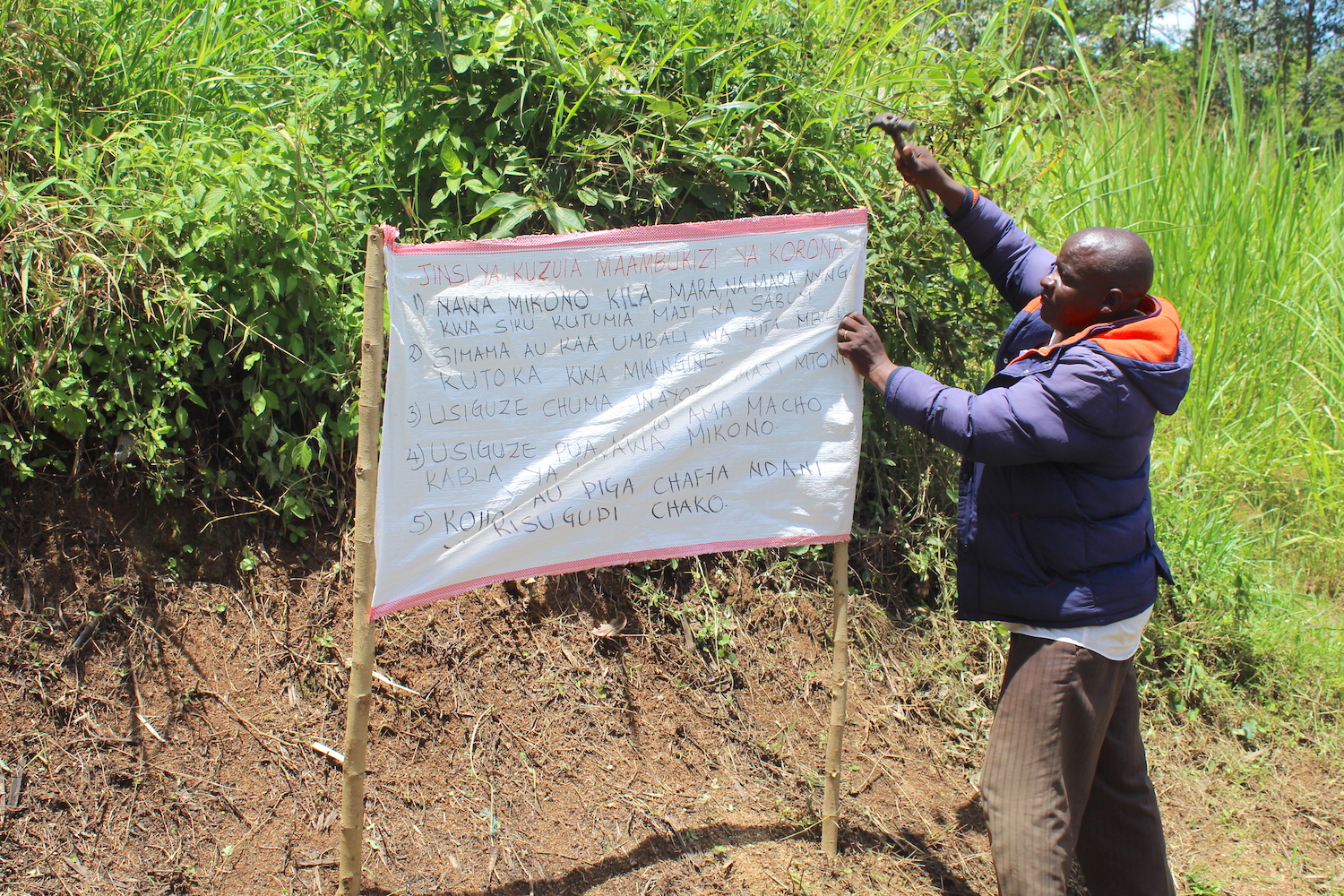
A community member hammers the bamboo pole of a Kiswhahili sugar sack sign into the ground at Rosa Spring in Elukho Community
These large posters are titled “How to Prevent Corona Infection” and list 5 steps people can take to protect themselves from the virus:
1. Wash hands many times daily using water and soap.
2. Stand two meters from each other.
3. Do not touch the spring’s metal discharge pipe.
4. Do not rub your nose or eyes before washing your hands.
5. Cough or sneeze into your elbow.
In addition, we are providing small handouts that come in 5 different local languages to each household describing the symptoms and prevention of COVID-19. These smaller signs include visual aids in addition to the writing.
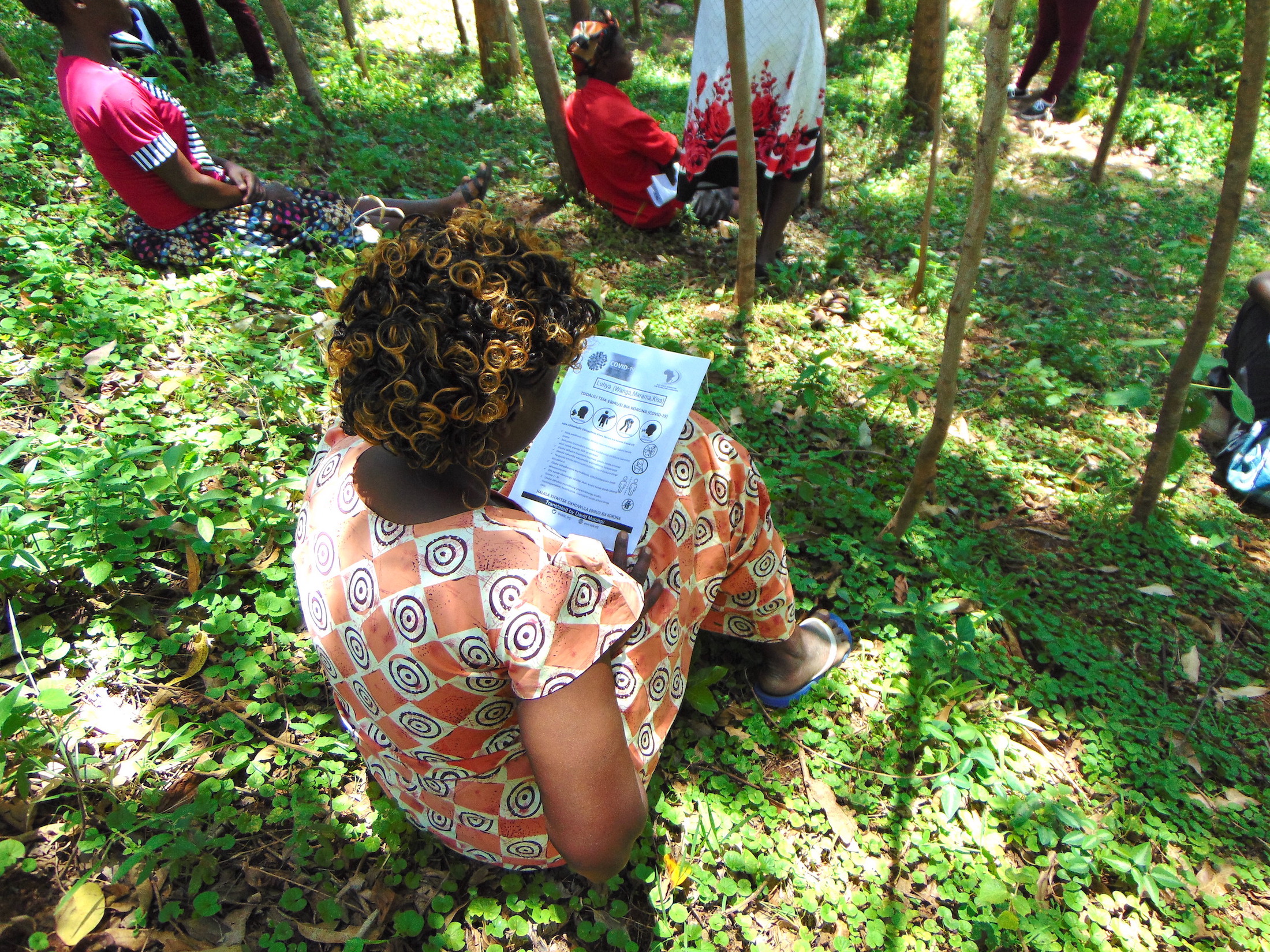
A woman reads a handout written in Luhya about COVID-19 at David Ashiona Spring in Shiamala Community
With each training, we are reaching a new group of people to have perhaps the most important conversation they will have this year to safeguard the health of themselves, their families, and their communities. We are working to visit as many communities as we can while the government still allows it. We hope you continue to support us in providing this vital service in a time of crisis.
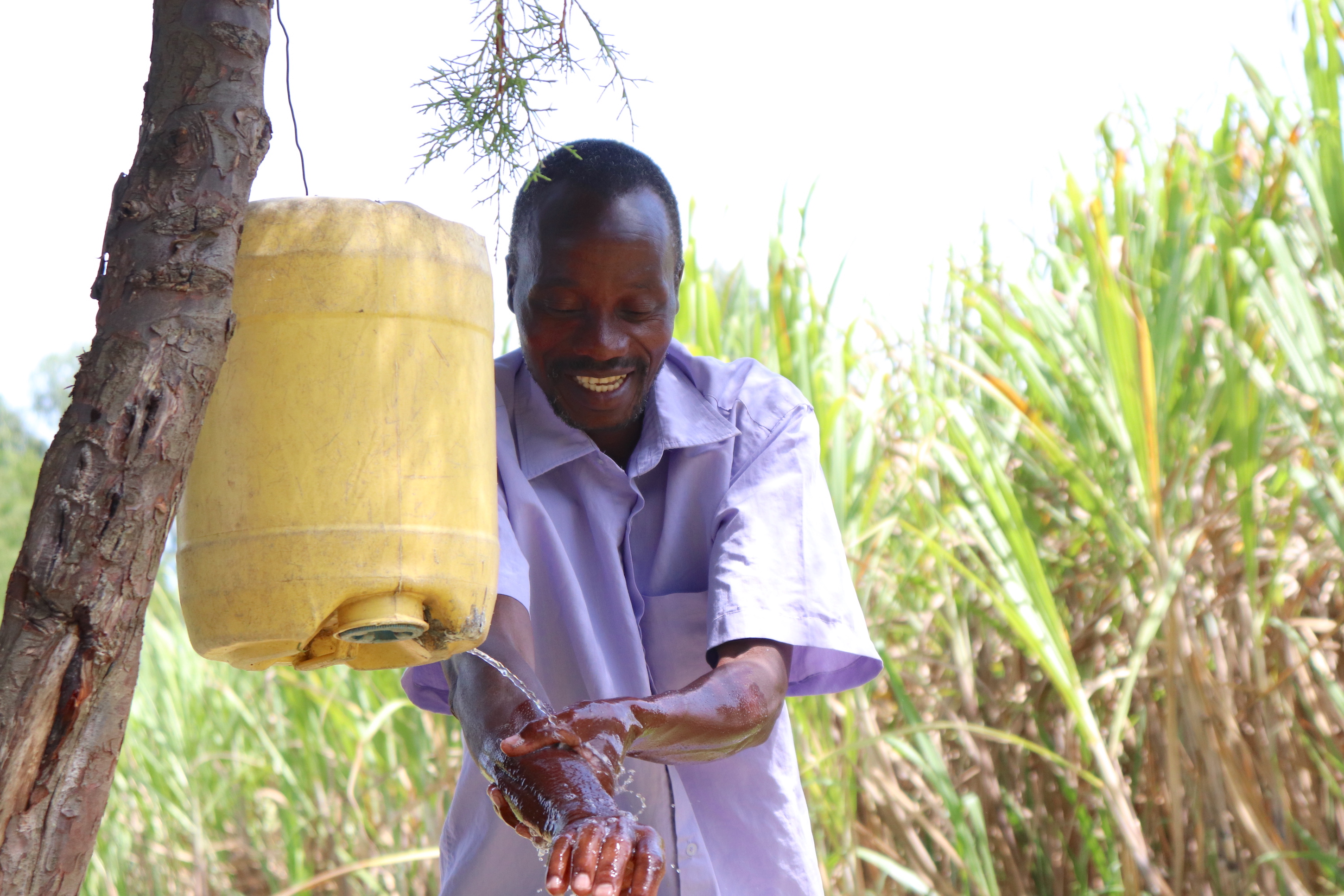
Mr. Henry washes his hands at a newly established leaky tin near Tsivaka Spring in Tsivaka Community
Tweet